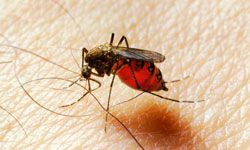Nothing can put a damper on a summer evening like bothersome mosquitoes buzzing around. Mosqu
itoes can be tricky creatures to avoid. In fact, they can detect the scent of a human 100 feet (30.5 meters) away [source: Cook]. Fortunately, there are many methods and products that can repel insects and allow you to enjoy the great outdoors.
Advertisement
Aside from keeping away pesky, itchy bug bites, insect repellent can protect you against significant health problems. Every year, the Centers for Disease Control and Prevention receives more than 20,000 reports of Lyme disease, carried by deer ticks, and 100 reports of encephalitis, carried by mosquitoes [source: EPA]. Additionally, since 1999, more than 27,000 cases of West Nile virus have been reported in the United States alone. Malaria, another mosquito-borne disease, kills more than one million people each year worldwide [source: Orkin].
Because there are many ways to protect yourself against insects, you'll want to take several factors into consideration when choosing a repellent. In general, you should think about the amount of time you'll be spending outdoors. A product that contains a higher concentration of an active ingredient will work best if you'll be outside for a long time. On the other hand, if you won't be out too long, you can choose a product with a lower active ingredient percentage. You can then reapply the product if you're out longer than expected.
Read on to learn about the top five ways to repel insects.















